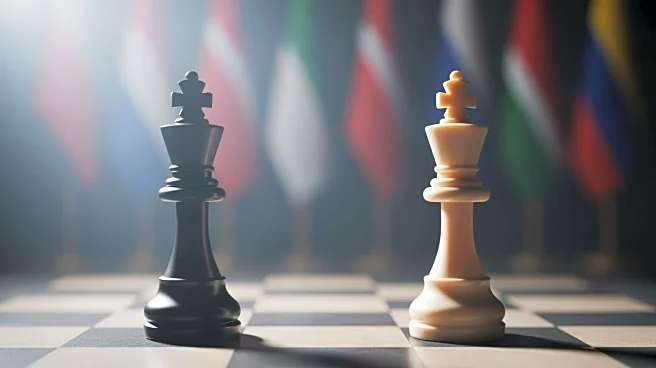What's Happening?
Poland's foreign minister, Radosław Sikorski, has stated that Poland cannot guarantee that Russian President Vladimir Putin's plane would not be forced to land on Polish territory en route to a meeting
with U.S. President Donald Trump. This statement comes amid tensions surrounding an arrest warrant issued by the International Criminal Court (ICC) for Putin, accusing him of illegally deporting Ukrainian children. The ICC has also issued a warrant for Maria Lvova-Belova, the Russian presidential commissioner for children's rights. President Trump plans to meet Putin in Budapest following discussions with Ukraine's leader, Volodymyr Zelensky.
Why It's Important?
The potential arrest of President Putin could have significant diplomatic repercussions, affecting international relations and the ongoing conflict in Ukraine. Poland's stance highlights the complexities of international law enforcement and the challenges faced by countries in balancing diplomatic relations with legal obligations. The situation underscores the tension between Russia and Western nations, particularly in light of the ICC's charges against Putin. This development could influence U.S. foreign policy and its approach to the Russia-Ukraine conflict.
What's Next?
The meeting between President Trump and President Putin in Budapest could be pivotal in shaping future diplomatic engagements. Poland's warning may prompt discussions on international legal protocols and the enforcement of ICC warrants. The U.S. and other nations may need to navigate the diplomatic implications of Poland's position, potentially influencing future interactions with Russia. The situation remains fluid, with potential updates expected as the meeting approaches.
Beyond the Headlines
This situation raises questions about the role of international courts in enforcing justice and the impact of geopolitical tensions on legal proceedings. The ICC's actions against Putin highlight the challenges of holding powerful leaders accountable, and Poland's warning reflects the delicate balance between legal obligations and diplomatic relations. The broader implications for international law and justice systems could be significant, influencing future cases involving high-profile figures.








